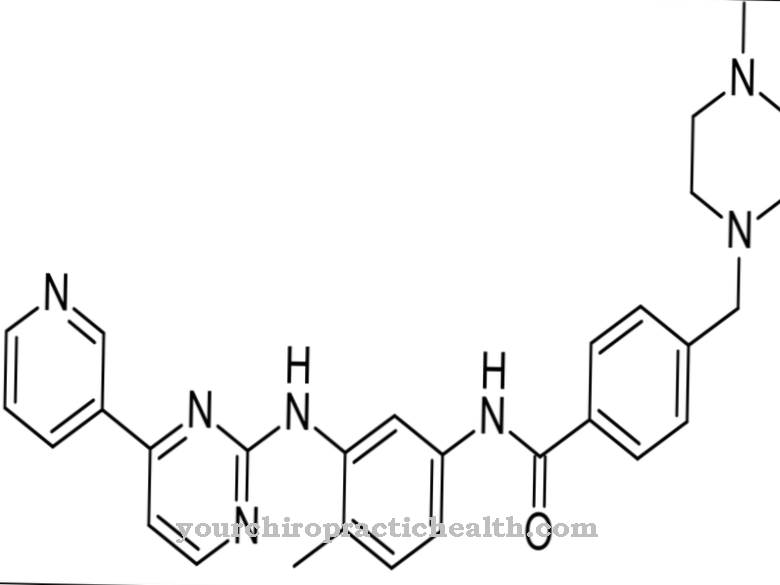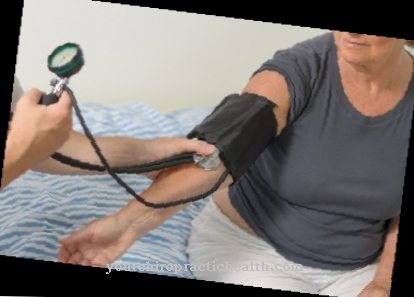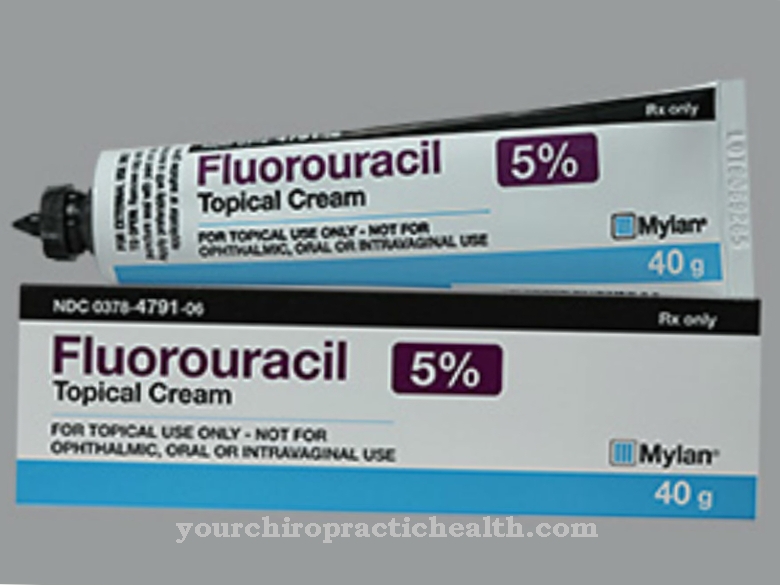At Epirubicin It is a widespread organic substance that is primarily used as a hydrochloride in the course of chemotherapy to treat cancer. Preparations containing epirubicin are basically toxic and are therefore referred to as cytostatic agents. The main areas of application for epirubicin include the treatment of breast cancer, stomach cancer and advanced cancers of the skin, tendons, muscles or ligaments.
What is epirubicin?
The pharmacological agent epirubicin is used in human medicine to treat various types of cancer. The substance forms an essential part of the chemotherapy to be carried out for breast cancer, stomach cancer and already well advanced cancers of the muscles, tendons, ligaments or the skin.
Epirubicin is usually administered in the hydrochloride form and forms part of numerous cytostatics. A cytostatic is a basically toxic substance that is used as a medicinal substance to treat cancer due to its powerful effects.
Epirubicin has the chemical formula C 27 - H 29 - N - O 11. The hydrochloride form used in preparations for therapy is, however, described by the empirical formula C 27 - H 29 - N - O 11 - H - Cl.
Epirubicin inhibits cell division and the formation of genetic material in cancer cells. In addition, the build-up of nucleic acids is prevented. Since epirubicin is administered for chemotherapy, it is administered intravenously as an infusion solution. The purpose of the treatment can - depending on the severity of the cancer - be curative (for healing) or merely palliative (to relieve symptoms).
Pharmacological effect
Epirubicin is one of the cytostatics. The substance itself is therefore extremely toxic. The hydrochloride form used in therapy inhibits RNA and DNA polymerase by not attaching covalently to DNA. Because of this non-covalent bond, DNA and RNA synthesis fail completely, which ultimately causes apoptosis of the cancer cells.
Apoptosis is the controlled cell death that is controlled by gene expression and does not cause an inflammatory reaction. Epirubicin thus kills cancer cells and prevents them from multiplying or spreading the cancer.
Medical studies have shown that the active ingredient quickly penetrates the cancer cells and concentrates there around the cell nucleus. Therefore, epirubicin is effective against many different forms of cancer. These include u. a. Stomach and breast cancer as well as cancers of the skin, muscles, ligaments, tendons and bronchi. Epirubicin can also be given to fight bladder cancer.
Medical application & use
Due to its highly toxic effect on cells, epirubicin is the main active ingredient in numerous cytostatics. Preparations containing the substance are therefore given to effectively fight various forms of cancer.
This is achieved through comprehensive chemotherapy, which can be guided by curative or palliative aspects. Epirubicin is administered intravenously as an infection solution under constant medical supervision in order to kill cancer cells in a targeted manner. For the treatment of bladder cancer, the active ingredient can also be poured directly into the urinary bladder to enable a precisely controlled therapy.
Due to its toxic effect and its intended use for chemotherapy, epirubicin is only administered by medical professionals. Patients cannot purchase and use the substance themselves in the pharmacy.
You can find your medication here
➔ Medicines for relaxation and nerve strengtheningRisks & side effects
Because of its basically toxic effect on cells, therapy with epirubicin causes severe side effects. This is typical for cytostatics, as they can affect other cells in addition to the desired cancer cells, which leads to a massive weakening of the [[immune system].
The most common side effects include severe hair loss and gastrointestinal complaints. These are usually expressed as nausea, vomiting, diarrhea, stomach cramps, persistent loss of appetite and abdominal pain. Skin reactions such as itching, redness or rashes of various forms are also not uncommon.
Patients who were treated with cytostatics such as epirubicin also report a strong feeling of tiredness and general listlessness and weakness. The treatment can also trigger a disease of the heart muscle (myocardium) is responsible for the mechanical and electrophysiological function control of the heart. In the professional world it is then referred to as cardiomyopathy.
The usual side effects of epirubicin also include the development of anemia and bone marrow depression and the development of neutropenia or thrombocytopenia.



























